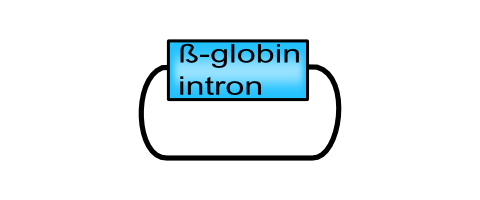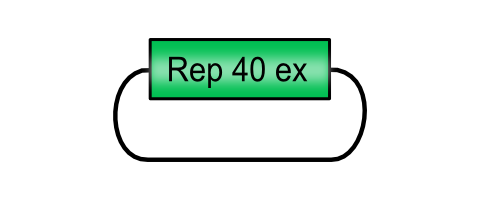Difference between revisions of "Part:BBa K404090"
| Line 4: | Line 4: | ||
[[Image:Freiburg10_ReplicationBricks 1.png|thumb|center|480px]]<br> | [[Image:Freiburg10_ReplicationBricks 1.png|thumb|center|480px]]<br> | ||
| − | <h3> | + | <h3>Rep40</h3> |
{| style="margin: 0px 0px 300px 20px; color: black; float: right;" cellpadding="6" cellspacing="1" border="2" | {| style="margin: 0px 0px 300px 20px; color: black; float: right;" cellpadding="6" cellspacing="1" border="2" | ||
| − | ! colspan="2" style="background:#66bbff;"|[https://parts.igem.org/Part: | + | ! colspan="2" style="background:#66bbff;"|[https://parts.igem.org/Part:BBa_K40490 <i>beta-globin</i> intron] |
|- | |- | ||
! colspan="2"|[[Image:Freiburg10 VectorplasmidBricks 4.png|200px]] | ! colspan="2"|[[Image:Freiburg10 VectorplasmidBricks 4.png|200px]] | ||
|- | |- | ||
|'''BioBrick Nr.''' | |'''BioBrick Nr.''' | ||
| − | |[https://parts.igem.org/Part: | + | |[https://parts.igem.org/Part:BBa_K40490 BBa_K40490] |
|- | |- | ||
|'''RFC standard''' | |'''RFC standard''' | ||
| Line 27: | Line 27: | ||
<html> | <html> | ||
<p style="margin-right:100px" align="justify"> | <p style="margin-right:100px" align="justify"> | ||
| − | + | ||
| − | + | Rep40 in some minutes<br/> | |
| − | + | • 40 kDa<br/> | |
| − | + | • ATPase and helicase activity <br/> | |
| − | + | • Involved in genome encapsidation<br/> | |
| + | The smallest Rep protein (Rep40) possesses helicase and ATPase activity as well, but does not have strict requirements for DNA duplexes containing a 3´single-stranded end. Rep40 helicase activity requires bivalent ions such as Mg2+ or Mn2+ and is most active using ATP as substrate. Lacking the zinc finger domain, present in Rep52, Rep40 requires dimerization for functional helicase activity (Collaco, Kalman-Maltese, Smith, Dignam, & Trempe, 2003). Rep40/52 proteins are required for translocation of the single-stranded, viral genomes into the preformed capsids proceeding with the 3´end of the DNA (King, Dubielzig, Grimm, & Kleinschmidt, 2001). | ||
| + | |||
<br /> | <br /> | ||
| + | |||
</p> | </p> | ||
</html> | </html> | ||
| Line 43: | Line 46: | ||
</p> | </p> | ||
</html> | </html> | ||
| − | + | <html> | |
| + | <h3>References</h3> | ||
| + | </html> | ||
<!-- --> | <!-- --> | ||
<span class='h3bb'>Sequence and Features</span> | <span class='h3bb'>Sequence and Features</span> | ||
Revision as of 22:20, 26 October 2010
[AAV2]-Rep40ex
Rep40
| beta-globin intron | |
|---|---|

| |
| BioBrick Nr. | BBa_K40490 |
| RFC standard | RFC 10 |
| Requirement | pSB1C3 |
| Source | pAAV_MCS |
| Submitted by | [http://2010.igem.org/Team:Freiburg_Bioware FreiGEM 2010] |
Rep40 in some minutes
• 40 kDa
• ATPase and helicase activity
• Involved in genome encapsidation
The smallest Rep protein (Rep40) possesses helicase and ATPase activity as well, but does not have strict requirements for DNA duplexes containing a 3´single-stranded end. Rep40 helicase activity requires bivalent ions such as Mg2+ or Mn2+ and is most active using ATP as substrate. Lacking the zinc finger domain, present in Rep52, Rep40 requires dimerization for functional helicase activity (Collaco, Kalman-Maltese, Smith, Dignam, & Trempe, 2003). Rep40/52 proteins are required for translocation of the single-stranded, viral genomes into the preformed capsids proceeding with the 3´end of the DNA (King, Dubielzig, Grimm, & Kleinschmidt, 2001).
Characterization
The BioBrick part beta-globin intron consists partially of a chimeric CMV promoter, followed by the intron II of the beta-globin gene. The 3´end of the intron is fused to the first 20 nucleotides of exon 3 of the beta globin gene. Our BioBrick part beta globin intron is assumed to enhance eukaryotic gene expression.
AAV-293 cells were transfected with all genes necessary for producing viral particles encapsidating two different rAAV genomes with and without beta-globin intron respectively. mVenus expression was determined by flow cytometry 24-hours post infection of HT1080 cells. The rAAV genomes missing the beta-globin intron showed a negligible difference in mVenus expression compared to viral genomes containing the beta-globin intron. Considering these results, we suggest using the beta-globin intron in dependence on the size of your transgene.
References
Sequence and Features
- 10COMPATIBLE WITH RFC[10]
- 12COMPATIBLE WITH RFC[12]
- 21INCOMPATIBLE WITH RFC[21]Illegal BamHI site found at 53
Illegal XhoI site found at 920 - 23COMPATIBLE WITH RFC[23]
- 25COMPATIBLE WITH RFC[25]
- 1000COMPATIBLE WITH RFC[1000]

